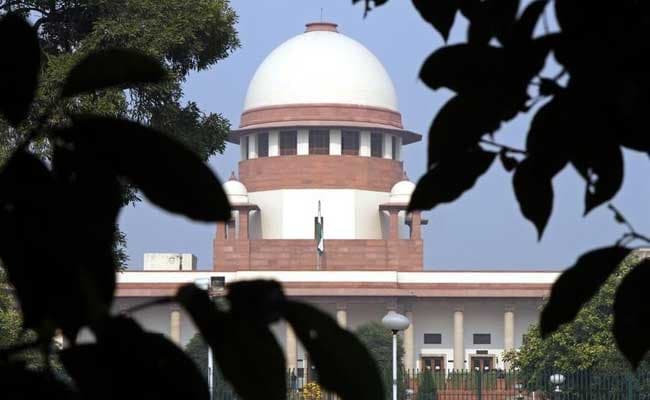
A bench comprising justices Dipak Misra and Shiva Kirti Singh asked the Maharashtra government to clarify its stand on some contentious conditions put by its police for according licences.
New Delhi:
The Supreme Court on Wednesday sought response of Maharashtra Police on objections raised against its various conditions, like videographing entire dance performance and segregating the dance area, put in place for granting licences to dance bars across the state.
A bench comprising justices Dipak Misra and Shiva Kirti Singh asked the Maharashtra government to clarify its stand on some contentious conditions put by its police for according licences.
Senior advocate Jayant Bhushan, appearing for the dance bar association, referred to the various conditions put by police and said that they are "regressive ones" and needed to be done away with.
Maharashtra Police, in its conditions, has said that the dance bar owners will have to cover and segregate bar area with that of dance performance area and they will also have to provide CCTV footage to the area police of the performance of women artistes.
The top court had in November last year pulled up the Maharashtra government for not complying with its October 15, 2015 order, asking it to consider granting licences of dance bars to hoteliers and had ordered it to process such pleas within two weeks.
It had also raised questions over the state government laws banning dance bars and said as to "how individual morality, perceptive morality and selective morality can merge into collective and legal morality".
It had allowed Vinod Patil, President of RR Patil Foundation, to intervene in the matter. Patil had in his plea claimed that reopening of dance bars would increase crime.
On October 15, 2015, the apex court had stayed the operation of 2014 amendment in Maharashtra Police Act that had banned dance performances at bars and some other places, paving the way for reopening of dance bars across the state.
The order had come on a petition filed by Indian Hotel and Restaurant Association challenging the amendment and sought contempt of court action against the Maharashtra government.
The court had noted that the provision was brought back in Maharashtra Police Act in 2014 after being held ultra vires in 2013 by the top court.
A bench comprising justices Dipak Misra and Shiva Kirti Singh asked the Maharashtra government to clarify its stand on some contentious conditions put by its police for according licences.
Senior advocate Jayant Bhushan, appearing for the dance bar association, referred to the various conditions put by police and said that they are "regressive ones" and needed to be done away with.
Maharashtra Police, in its conditions, has said that the dance bar owners will have to cover and segregate bar area with that of dance performance area and they will also have to provide CCTV footage to the area police of the performance of women artistes.
The top court had in November last year pulled up the Maharashtra government for not complying with its October 15, 2015 order, asking it to consider granting licences of dance bars to hoteliers and had ordered it to process such pleas within two weeks.
It had also raised questions over the state government laws banning dance bars and said as to "how individual morality, perceptive morality and selective morality can merge into collective and legal morality".
It had allowed Vinod Patil, President of RR Patil Foundation, to intervene in the matter. Patil had in his plea claimed that reopening of dance bars would increase crime.
On October 15, 2015, the apex court had stayed the operation of 2014 amendment in Maharashtra Police Act that had banned dance performances at bars and some other places, paving the way for reopening of dance bars across the state.
The order had come on a petition filed by Indian Hotel and Restaurant Association challenging the amendment and sought contempt of court action against the Maharashtra government.
The court had noted that the provision was brought back in Maharashtra Police Act in 2014 after being held ultra vires in 2013 by the top court.
Track Latest News Live on NDTV.com and get news updates from India and around the world

